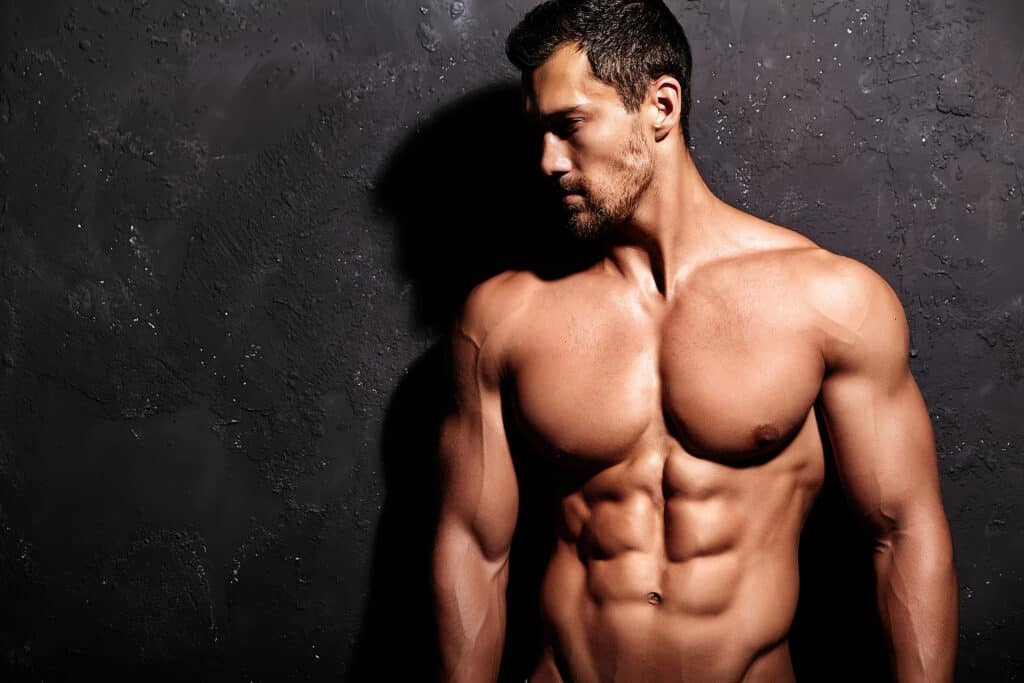Protein. We all need it, but many of us don’t get enough of it. Building muscle requires regular bouts of strength training and adequate protein to promote muscle protein synthesis. Ask any five hard core weightlifters how much protein is necessary to build muscle and you’ll get five different answers. One thing is for sure, each meal, snack and protein drink may require a minimum of 20-25 grams, according to research. It has been proposed that muscle protein synthesis is maximized with the intake range mentioned.
How Much Protein Do You Need?
The question of how much depends on several factors. Factors such as your bodyweight, training goals, and level of activity. The original protein RDA recommendation was 0.8 grams/kilogram of bodyweight. When strength training and athletic competition come into play, that number increases. Typical intake ranges have been reported between 1 to 2 grams/protein/kilogram of bodyweight. There is a protein calculator, found here, that you can use to determine your protein needs. (source: Examine.com)
Conversely, eating too much protein could eventually lead to health problems. If this happens, it can lead to liver and kidney overload, according to a report from McGill University in Canada. Basically, the liver cannot convert nitrogen into urea fast enough which means the kidney’s have to deal with the extra urea. Too much urea in the body can lead to dehydration. Remember, the body can’t store extra protein.
Protein Intake Research
Several studies based on data collected from individuals engaged in vigorous aerobic exercise, on a regular basis, demonstrated higher daily protein needs more in line with 1.1 to 1.4 grams/kg/day. This by the way is about 38 to 75 percent above the current RDA range. Various research groups have reported the optimal intake should be more in line with a protein range of 1.5 to 1.8 grams/kg/day; about 88 to 125 percent above the RDA.
A research paper published by Fielding and his colleague cited “current recommended intakes of daily protein for strength and endurance athletes are 1.6 to 1.7 g/kg and 1.2 to 1.4 g/kg per day, respectively. They went on to mention that most athletes get enough protein in their diet. Where most typically get things wrong is with “the timing and nutritional content of the post-exercise meal, (is) often overlooked.”
Healthy Protein Options
Breakfast
Let’s start with breakfast. Eggs are high on most bodybuilder favorite foods. Good reason too. They offer good sources of vitamins and minerals. One large egg has 72 calories and 6.3 gram of protein. Another good option is oatmeal, with 2 cups giving you 10.6 grams of protein. Finally, a serving of plain Greek yogurt has about 16 grams of protein. You can double up by mixing the oatmeal and yogurt together and adding some almonds.
Lunch
A go-to healthy, meal option for many is a salad with added protein. This is a great way to get your “Plus 5 a Day” too. This is two servings of fruit and three servings of fruit a day. Add tuna, fish, avocado, cottage cheese, with plenty of veggies, etc. to your salad and BANG!! you get more than enough protein.
Dinner
Here are a just a few high protein dinners options to enjoy. Salmon with brown rice and vegetables, spinach and pasta with a poached egg, tofu, favorite vegetables and chickpeas. A few others choices, chicken with vegetables, split pea soup, fish taco bowls, frittata with asparagus and mushroom, and chicken & broccoli pasta.
Final Thoughts
First, use the protein calculator, mentioned above, to get an idea where you need to be for your protein intake. Remember, it’s not an exact science. See how you perform and gain muscle on various protein intake ranges.
Stay Strong Together
Jefit app as named best fitness app for 2023 by the International Association of Strength Coaches. The app comes equipped with a customizable workout planner and training log. The app also has ability to track data, offer audio cues, and has a feature to share workouts with friends. Take advantage of Jefits exercise database for your strength workouts. Visit our members-only Facebook group. Connect with like-minded people, share tips, and advice to help get closer to reaching your fitness goals.
- Top Hip & Back Extension Exercises for Posterior Chain Power - April 23, 2025
- Best Exercises to Build Strong & Defined Shoulder Muscles - April 21, 2025
- Whey vs. Casein: What’s the Best Protein for Building Muscle - April 18, 2025
